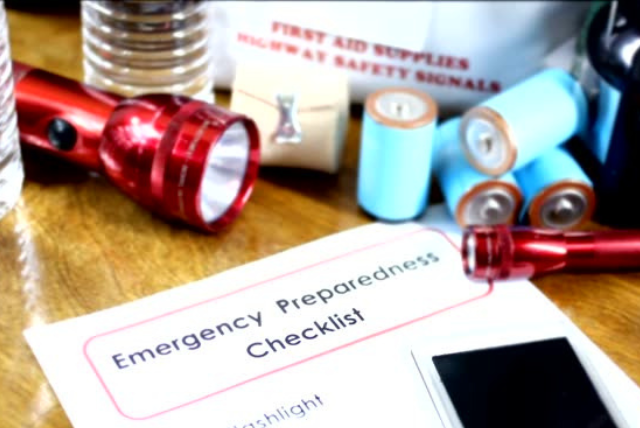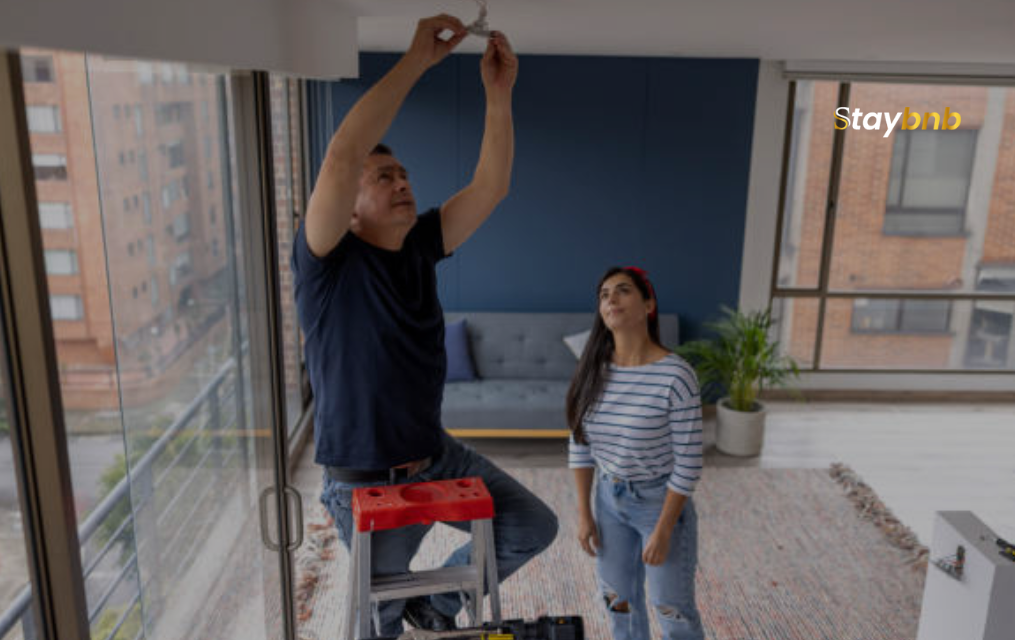How to Handle Emergency Repairs and Maintenance
As a landlord, there’s nothing quite like getting an urgent call in the middle of the night about a broken furnace or a burst pipe. Such circumstances require an immediate response.
A property management company makes dealing with emergencies less stressful. However, landlords must know what counts as an emergency. They should also understand how to approach these situations when they arise.
Research by the National Association of Realtors shows that over 80% of landlords feel pressure and financial strain from emergency repairs, with 62% citing financial reasons for deferring maintenance tasks during challenging economic times.
Knowing what qualifies as an emergency and taking steps to minimize them helps landlords manage these issues effectively.
Well, let’s talk about everything in this guide.
What Qualifies as an Emergency Repair?
Not all repair concerns are urgent, so it’s essential to know what actually makes up an emergency. Urgent repairs may lead to further damage or harm to your property and endanger your tenants’ lives. Understanding what qualifies as an emergency helps you decide which repairs to prioritize and how to act. Let’s look at them:
Common Tenant Emergencies in Rental Properties
- Gas Leaks or Carbon Monoxide Issues: These situations require immediate attention. If you detect a gas leak or carbon monoxide, evacuate the building and call emergency services right away.
- Burst Pipes or Severe Plumbing Issues: Water damage can escalate quickly. Failing to address a burst pipe can lead to significant property damage. Prompt action helps reduce the impact.
- Heating or Air Conditioning Failure in Adverse Weather: Certain regions have ordinances that demand heat during winter. If a tenant does not have heat during winter, it becomes an emergency.
- Electrical Problems or Exposed Wires: Problems with electricity are not always safe. It could result in fires or even accidents because of the exposed wires. These problems should be addressed as soon as possible to save the lives of the tenants.
- Sewage Backups: Sewage problems pose a lot of health risks. This requires urgent intervention to prevent harm to your tenants and the building.
Common Non-Emergency Repairs
Sometimes tenants may think that some problems are urgent, but, actually, they are not emergencies. Non-emergency issues can usually wait a few days to a week. Here are a few rental property repairs:
- Broken Appliances A malfunctioning stove or freezer isn’t immediately hazardous but should be fixed soon. Let your tenants know it will be taken care of shortly.
- Small Leaks: Minor leakage from faucets or windows can be left alone. But if neglected, they can become even more of an issue because they are not something you can just fix in a day.
- Cosmetic Damage: Holes in the walls, chipped paint, or other small damages may be set up for a later time. They might alter the looks of the property, but not the structural integrity of the property.
Note: It’s important that tenants are informed on what constitutes an emergency and what does not. It prevents the creation of panic and brings order in setting people’s expectations. Whenever the tenants grasp the difference, they are likely to be more comfortable and less worried about their shelters.
Preparing for Unexpected Emergencies
It is impossible to know when an emergency will occur, but being ready can literally save the day. Here’s how you can be proactive:

1. Always Have a List of Contractors
It is always important to have a list of preferred contractors available at all times. You should always have the phone numbers of at least two or three reputable plumbers, electricians, and HVAC contractors.
If one contractor is not available, one can easily call another one. Such preparation helps you to be ready to handle any emergent situation, for example, a leaking pipe or a power failure.
2. Set Up Communication Guidelines for Tenants
Make sure your tenants know what counts as an emergency and the best way to report it. Clear instructions help everyone stay on the same page and ensure issues are addressed promptly.
In case of emergencies, it’s also useful to have a special phone number or system that will call you in the first place.
This assists in reducing cases where people bring any matter that is not so serious while at the same time making sure that those that are sensitive are attended to as soon as possible.
3. Set Realistic Expectations
Tenants must be aware that some of the repairs may take time. For example, if there is a snowstorm, it may take 8 to 12 hours for the help to come.
Communicating to tenants regarding possible delay will assist them to comprehend, and this will not cause them to feel frustrated.
In fact, research shows that setting clear timelines for repairs can lower tenant complaints by 30%.
4. Perform Regular Maintenance
Regular maintenance is the best way to prevent emergency repairs from being done on the vehicle. You should perform annual checks on the HVAC system, inspect the plumbing, and ensure the roof is in good condition.
Preventing problems from getting worse is always less costly than having to treat them when they are already out of hand.
Managing Repairs: Different Approaches
Landlords have multiple ways to handle repairs, including emergencies. The three most common approaches are:
1. DIY Repairs
Some landlords choose to manage all repairs themselves to save money and stay in control. However, this approach involves:
- Receiving and responding to tenant calls at any hour.
- Inspecting issues personally and determining if professional help is required.
- Contacting technicians for repairs outside the landlord’s expertise.
Using a separate phone line or virtual number for tenant calls is helpful. This prevents tenants from calling the landlord’s personal phone for every minor issue. With a virtual number, tenants can leave messages, and the landlord can return calls as needed. This ensures only genuine emergencies receive immediate attention.
DIY maintenance can be challenging, as tenants sometimes expect immediate solutions. Having a list of trusted contractors on standby ensures quick action when emergencies occur.
2. Outsourcing Repairs to Vendors
Some landlords may want to manage the tenant leasing and rent themselves but may contract out the maintenance services. These vendors are usually involved in offering routine and demand repair services in the rental units.
Outsourcing is a way to achieve the best of both worlds on the issue of self-organization and professional assistance. It allows landlords to remain involved with their property management without having to sort out every repair themselves. When hiring maintenance vendors, it’s essential to:
- Verify their response times for emergencies.
- Ensure they follow legal and safety standards for repairs.
- Confirm they are familiar with rental property management requirements.
This option works well for first-time landlords who want to manage their properties but feel overwhelmed by maintenance tasks.
3. Hiring a Property Management Company
Landlords looking for a hands-off approach often turn to property management companies. These companies oversee all aspects of the property, including repairs, emergencies, and tenant communications.
When considering a property management company, ask the following questions:
- Are there additional charges for emergency services?
- What is the guaranteed response time for emergencies?
- What repairs can they handle without landlord approval?
- Do they have established partnerships with local vendors?
- How should tenants report repairs, both urgent and non-urgent?
Financial Readiness in Case of Disaster
Emergencies can be costly. For example, plumbing repair costs can be between $500 and $2000 or more. As any homeowner knows, it is always wise to put some money aside for the rainy day when a shower will be a leaking roof. It is advised that you set aside a fraction of the rental income you receive each month in case of an emergency.
Thus, you will be ready financially and can solve problems when they arise.
Last Words
Dealing with emergency repairs is a part of being a landlord. But as you’ve learned here, these challenges can be well-controlled if you are well-prepared. Yes!
That way, you can prevent a lot of emergency situations from happening in the first place. But when emergencies occur, which they always do, you will be prepared to deal with them. Maintenance and financial readiness are important aspects when it comes to the safety of the properties and contented tenants.
FAQs About Handle Rental Properties Emergency Repairs & Maintenance
What is an emergency repair in rental properties?
Emergency repairs are urgent problems that could harm tenants or cause serious property damage. Some common examples are:
- Gas leaks or carbon monoxide problems
- Burst pipes or flooding
- No heat in cold weather
- Electrical issues, like exposed wires
- Sewage backups
These repairs need quick attention to avoid further damage and keep tenants safe.
How should tenants report an emergency repair?
Tenants should follow the landlord’s instructions for reporting emergencies. Usually, this means:
- Calling the landlord or a special emergency number.
- Describing the problem clearly (like a leaking pipe or strange smell).
- Following safety steps if needed, like leaving the home if there’s a gas leak.
Good communication ensures fast help when needed.
Do landlords have to fix emergencies by law?
Yes, many places have laws that require landlords to fix serious problems quickly. For example:
- Heating must be fixed fast during winter.
- Plumbing leaks that cause flooding need urgent repair. If landlords ignore these issues, they might face fines or legal trouble.
How can landlords prepare for emergency repairs?
Landlords can prepare by saving part of their rental income for emergencies. Experts suggest setting aside 10% to 15% each month. Regular maintenance, like checking plumbing and heating, also helps catch small problems before they turn into emergencies.



